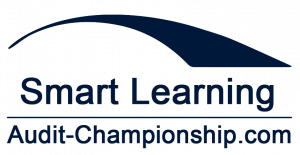Audit Samples According to International Audit Standards
– valid audit results by means of methodic professional examination efforts –
Objective:
Due to limited resources as well as a process-oriented examination procedure, fewer risk-oriented functional and case-by-case audits generally are conducted. For this reason alone, such examinations must be based on a qualitative intrinsic-value random sample. Practicing auditors often expect an increased effort due to the employment of risk-oriented random samples. Based on empiric examples, this particular consultancy module demonstrates and teaches that significant time savings can be achieved through the appropriate utilization of random-sample procedures. When such examinations are conducted in compliance with standards established by the Institute for Internal Auditors (IIA), among others, their results are accompanied by an increased audit quality. Within the framework of procedures covered in the course of instruction, participants are capable of applying the various random-sample techniques properly and conduct focused case-by-case audits at the same time.
In order to perform in accordance with both international and national audit standards – those of the IIA, the Institute of Public Auditors in Germany (Institut der Wirtschaftsprüfer in Deutschland = IDW), the International Standards on Auditing (ISAs), as well as those issued by the German Institute for Internal Auditing (Deutsches Institut für Interne Revision = DIIR) – it is necessary to conduct plausible and risk-oriented random-sample procedures.
The auditor’s task is to assess the quality of an examination conducted within the framework of annual financial statements (among others, in accordance with IDW PS 321 and ISA 610 standards). The plausibility of documentation with regard
Topics:
- Typical pitfalls in connection with a random-sample selection
- Types of random-samples and their use
- Requirements posed by audit standards according to the IIA, IDW and ISA
- Risk-oriented random samples and their factors of impact
- Consideration of the principle of materiality, risk of error and the economic efficiency of an audit
- Empiric examples from the practical audit environment or also individual performance of audit using actual company data
- Points of reference for future implementation and integration of random-sample methods into the operative audit procedure
- Integration into the risk-oriented examination methods employed in an individual audit
Training Team
Audit-Championship is a university spin-off. We focus on networking between science and practice. Audit-Championship provides thought leadership and innovative methods to support its customers across all industries in digital transformation. We support audit departments globally as well as national Internal Audit associations with yearly 1.800+ training days and transformation services along an internal audit knowledge value chain.
Inhouse Training on demand
Conditions and Price
Get in touch with us, we look forward to developing a great training event and didactical concept for you and your internal audit team.
Didactics | Methodology
We train you and your team on-site, or we can train you online worldwide in the form of a Virtual Training Series: Interactive lecture, discussion, practical example, case studies, reflection.
ENJOY THE TRAINING
After entering your contact data, we are happy to support you in a timely manner and will be in touch with you within the next 48 hours.

